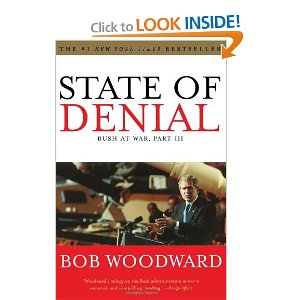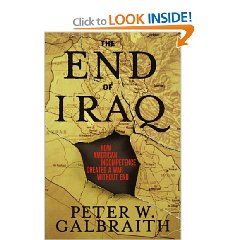
The ONLY “Before and After” Book on the Iraq Mis-Adventure,
The author provides both an introduction and a conclusion to the book that are unique to the book and set the articles in harmony as a whole.
There are other books that excel as retrospective reconstruction and finger-pointing, among which I would include HUBRIS, Squandered Victory, The End of Iraq, Imperial Life in the Emerald City, and most recently, State of Denial, but this is the only book to focus on all that we knew prior to the war about the daunting difficulties facing us in making the peace, and why the political leadership of the Executive did not want us to think about that, and why the political leadership of the Congress refused to play its role as a co-equal branch with the power of both the purse and the declaration of war exclusive to it.
James Fallows documents how virtually every sensible element of the federal government, from the military to the diplomats to the commerce and treasury and agriculture and others, all KNEW that invading Iraq was going to open a Pandora's box of sectarian violence, ethic conflict over resources, a collapse of good order, the failure of infrastructure the US would not be able to repair quickly enough, and on and on and on and on!
Objective observers, including the British, considered the claims of Cheney, Rumsfeld, and Wolfowitz with respect to the ease with which Iraq qould be liberated, to be the “ruminations of insane people.”
The author's bottom line is clear: the bureaucracy did its job and anticipated every single reason for not going to war, every single calamity that would befall us in Iraq. Where government failed was at the political level, with Dick Cheney closing out the policy process, spoon feeding the President lies from convicted thief and liar Chalabi, and with a full-court press backed by Wall Street and the media, to declare dissent to be treason–hence General Tony Zinni, former Commander in Chief for the Central Command, being called a traitor for sharing his knowledge.
The author and The Atlantic Monthly did not rely only on open sources. They sponsored a war game that came as close as possible to matching all that the US Government might be doing behind closed doors, using only open sources and overt experts, and here again, well in advance of the war, the conclusion was the same: don't do it!
The author concludes the book with several findings, all of which are completely consistent with the other non-fiction books I have read on Iraq and related blunders:
1) Corporations deciding on how to market a brand of toothpaste are vastly more meticulous and thoughtful that the political leadership in the Executive deciding to go to war on what proved to be whims, lies, and active mis-representation.
2) There was too little friction. The Administration got a “free ride” from the people, Congress, the media. Other than Senator Byrd, who shall long be my personal hero for his 80 speeches against the war (he alone among all the Senators stood fast on the matter of the Senate being equal to the Executive and having the right to question this idiocy–see my review of his book, Losing America), our Congress abdicated its responsibilities and failed the Nation. This was a bi-partisan failure, but the extremist Republican leaders were most to blame.
3) There has been no accountability. I remain shocked by the number of books and DVDs (see my list of Serious DVDs) that document the constant stream of lies and mis-representations from the political leadership and their tame uniformed members of the Joint Chiefs of Staff (who should be fired for confusing loyalty with integrity). It is a sad commentary on the Nation that the pedophile charges against Congressman Foley seem to carry more weight with the public than our 65,000 amputees.
I like this book very much. It is important for all Americans to understand that good minds working only with open sources of information easily anticipated the reasons why an elective war on Iraq was not a good idea. It is important for all Americans to know that the good people in State, Defense, and elsewhere got it right, but Dick Cheney shut them down, shut them out, and alone, bears responsibility for leading a young President ignorant of national security matters, on a very irresponsible and costly course of action.
Dick Cheney has a great deal to answer for–none of the others could have achieved their ill without him.

Click Here to Vote on Review at Amazon,
on Cover Above to Buy or Read Other Reviews,
I Respond to Comments Here or There








